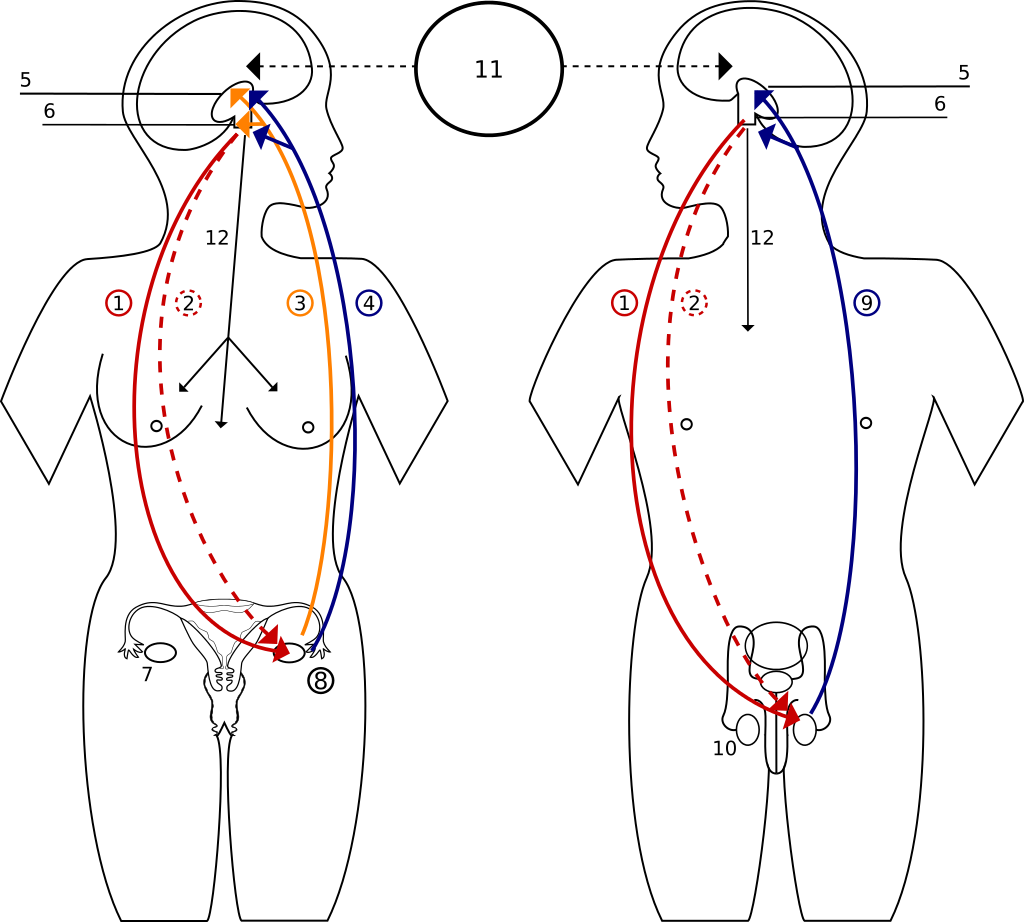Kabuki syndrome
4. Puberty
Puberty is the first phase of adolescence and youth. It typically begins at age 10 in girls and at age 11 in boys, finishing around 14 or 15 years old. During puberty, a process of physical changes occurs in which the child's body acquires the ability for sexual reproduction, transitioning into adolescence. It starts when the brain reaches a certain level of development and begins to secrete peaks of hormones that stimulate the sexual organs, known as gonadotropins.
There are two types of gonadotropins: luteinizing hormone (LH) and follicle-stimulating hormone (FSH). Both stimulate the sexual organs (the ovaries in females and the testes in males) to produce sex hormones, primarily estradiol in females and testosterone in males.

Hormonal Feedback Cycles: 1.Follicle-Stimulating Hormone (FSH) 2.Luteinizing Hormone (LH) 3.Progesterone 4. Estrogen 5.Hypothalamus 6.Pituitary Gland. 7.Ovary 8. Pregnancy (Human Chorionic Gonadotropin, hCG) 9.Testosterone 10. Testicle 11.Incentives 12.Prolactin (PRL) (Wikipedia)
Isolated premature thelarche (breast bud development) in girls is the most common endocrine anomaly reported (16% - 41%). This finding does not always indicate precocious puberty and is likely to resolve over time.